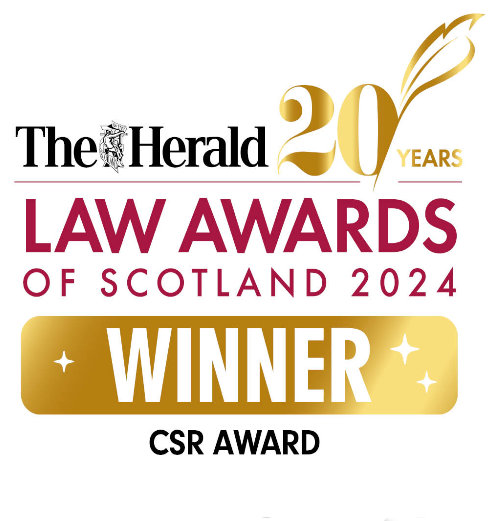Alternative Dispute Resolution
Alternative Dispute Resolution Lawyers Glasgow & Edinburgh
When you separate from your partner, there will almost certainly be legal issues to be dealt with. If you have children or jointly own property then decisions must be made about how the children are cared for or how the property is to be divided. While you can go to court and ask them to make these decisions for you alternatively you can engage in informal means of dispute resolution known as Alternative Dispute Resolution or ADR. Among these means of resolving disputes are Negotiation, Mediation and Collaboration.
What is Alternative Dispute Resolution? Why use ADR in family disputes?
ADR is on the rise. The number of family law cases going to mediation has doubled in recent years, as cuts to funding for certain types of case have been cut. Also, more and more couples have seen the benefit of having control over their situation and are using these routes to reach a settlement with fewer choosing to participate in litigation.
Alternative dispute resolution is an informal way to resolve family law disputes and disagreements. They are an alternative to the traditional means of resolving disputes which is, of course, going to court. The different types of ADR available in family law cases in Scotland include Negotiation, Collaborative law and Mediation. Which one is appropriate for you will depend on your particular circumstances. Neither party can be compelled to take part in these processes; both sides must enter them Free*ly.
If you and your partner are considering entering into ADR, contact us today. If you do not take legal advice, you may give up rights that you were unaware you had.
Why should I use alternative dispute resolution?
In family law cases, ADR can be a better option for several reasons:
- You have more control over how their case progresses
- It can be quicker and less expensive than going to court
- It is less stressful than going to court
- You do not have a decision imposed upon you
If you have cordial relations with your former partner, ADR is a good way bring your relationship to a quick, clean end.
WHEN SHOULDN’T I USE ADR?
ADR is not always an appropriate solution. Resolving disputes is not appropriate if your relationship with your partner is hostile or if there is a history of violence or abuse in the relationship.
WHAT ARE THE DIFFERENT KINDS OF ADR IN FAMILY LAW IN SCOTLAND?
There are kinds of ADR that can be used to deal with family law disputes: negotiation, mediation and collaborative family law.
HOW MUCH DOES ADR COST?
At Simplicity, we provide a fixed-cost service to ensure clarity, transparency and certainty. We know how stressful a family law situation can be without the burden of worrying about hidden charges.
HOW LONG DOES ADR TAKE?
While we cannot guarantee exact timeframes – a lot depends on your former partner – we will give you clear times for the work we will carry out.
WHAT DOES ADR INVOLVE?
Every case is slightly different, but we will meet you, talk you through each of your different ADR options and then invite your partner to participate in your chosen method to resolve matters using your preferred choice. At this stage, we can work with you through face to face meetings, telephone, email or Skype – whichever suits you best.
DO I NEED A LAWYER FOR ADR?
Relationships breaking down are a difficult time. Trying to deal with things alone can be even harder. At Simplicity, our job is to make sure that you get to the solution you need, as efficiently as possible. We will ensure that what you have agreed is the legally binding agreement you need, all the while giving our expert advice to help you avoid any legal pitfalls.
Alternative Dispute Resolution Family Solicitors Glasgow, Edinburgh, Shawlands, East Kilbride and Lanarkshire
For a Free* consultation with our specialist family lawyers based in Glasgow & Edinburgh, Scotland, call us today on 0141 471 9166 or complete our online enquiry form and let us help you.
Book a FREE
consultation
"(Please Confirm)" indicates required fields
What our clients say
“Thank you for all of your time, hard work and constant dedication you put into my case. It has been an absolute pleasure working with you to achieve the same goal which was to protect and secure the childhoods of my two girls.”
“Fantastic service from Emma and the team. Them together with sensible charges make it difficult not to recommend them. Many thanks again to all for your assistance.”
“Thank you so much for taking on and handling the contact and divorce cases in the way that you did. I am very grateful for all the work you put in. It was such a relief to have finally found an excellent solicitor.”
Latest News
Happy Mother’s Day to all Mums! How do you become a “Mother” in Scotland?
There are various ways to become a mother in Scotland: biological parenthood, adoption, fostering, surrogacy, or step-parenting. Different processes, laws...
Read MoreLife After a Breakup: Navigating Emotional and Legal Challenges – Family Law Divorce
Scots Law: Live, Laugh, Move On Breakups are undeniably tough—whether you’ve been together for a few months or many years,...
Read MoreNavigating Child Maintenance with a Solicitor in Scotland: Your Comprehensive Guide
Child maintenance can be a thorny issue for many separated or divorced parents. Ensuring that your child receives the necessary...
Read MoreSchool Placing Request Appeal Scotland Solicitor
One of the most crucial factors for parents to think about is where their children go to school. One of...
Read More





